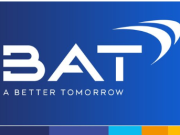Last November, the Finance Act 2019 raised excise duty charged on cigarettes by 14.1%. The levy per mille (thousand sticks) on filtered cigarettes rose to Sh3,157 from the previous Sh2,765, while the tax on non-filtered cigarettes was increased Sh2,272 from Sh1,990 per mille.
BAT said that the higher taxes have made cigarettes made in Kenya expensive, fuelling a black market of smuggled cheap products from neighbouring countries. “These new prices have been largely driven by the enactment of the Finance Act 2019, which has further increased the excise differential for tobacco products between Kenya and Uganda,” said the tobacco company.
Big Tobacco’s Tricks
Meanwhile, a recent analysis from New Zealand, has indicated that local tobacco companies have been using used annual tax increases to cover significant voluntary price increases.
Professor Richard Edwards, an Otago University academic and co-director of the ASPIRE 2025 project, pointed out that a common practice of tobacco companies across the globe.
“The industry tends to portray itself as fighting tax increases so as to help out smokers, when really it is clear they often use such increases to bring in price increases that they blame on the government.”
“Of that price, $7.86 was excise tax and $5.60 was revenue for tobacco companies. By March 2019, the average price had skyrocketed to $37.48. Of that price, the government took $23.12. But the most striking change was that tobacco companies had almost tripled their average revenue per pack to $14.36.”
The professor explained that these voluntary price increases have been hiding in plain sight. While regular tax increases have increased the price of an average cigarette pack by approximately $1.70 per year, tobacco companies have simply added an extra $1 to go into their own pockets.
Read Further: Business Daily












